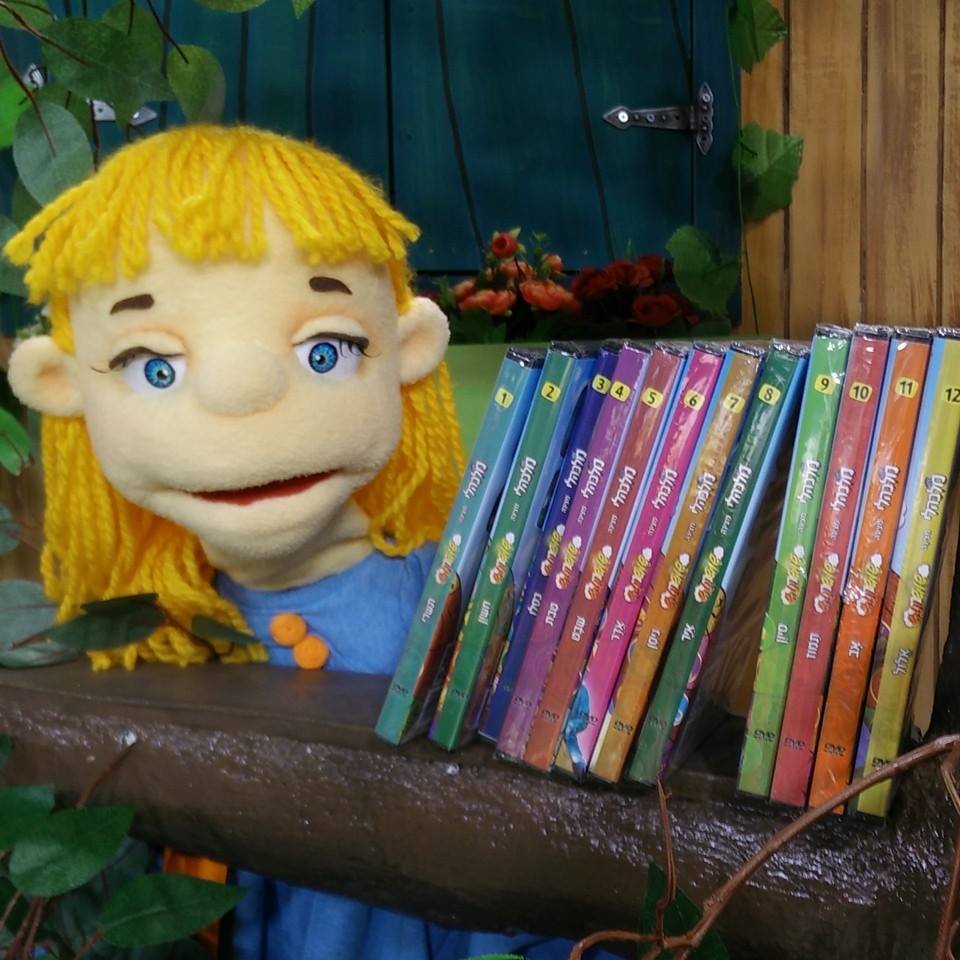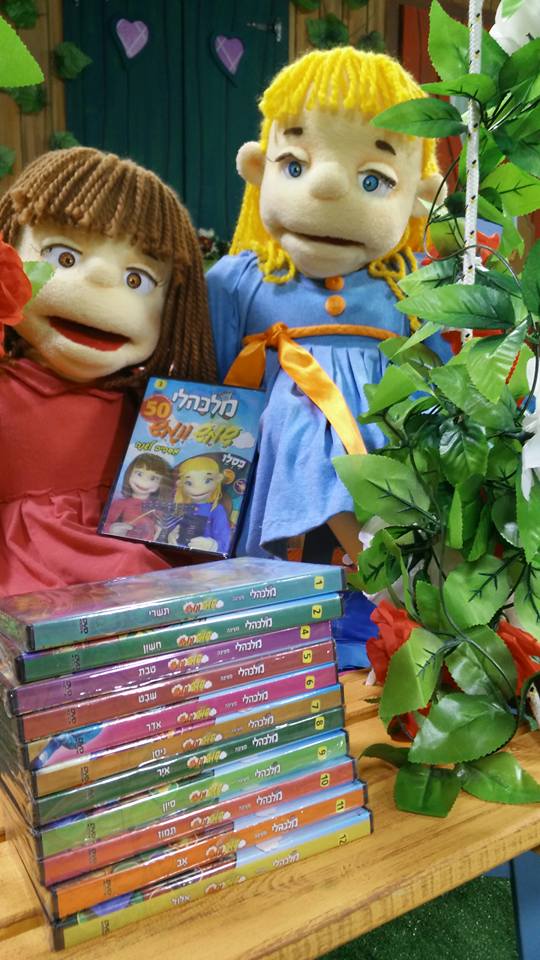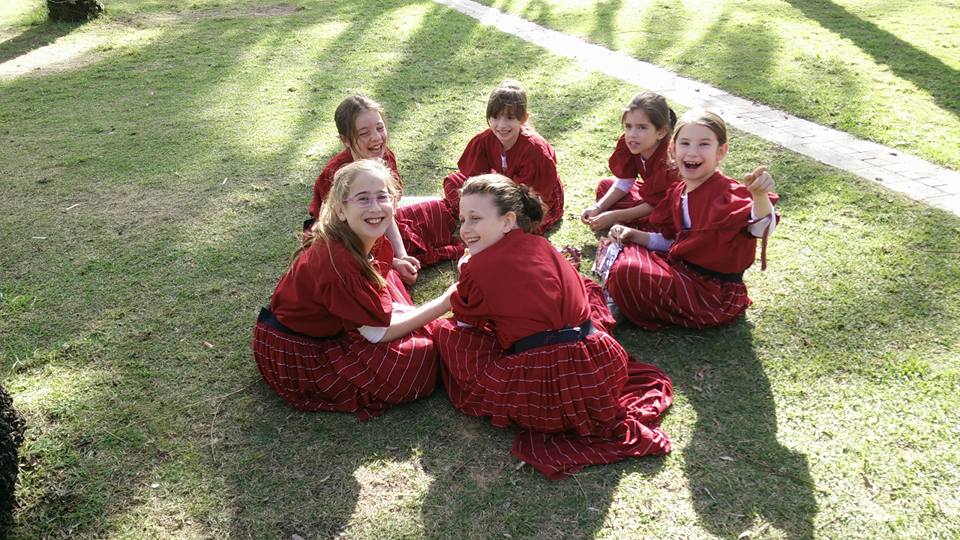CDs, Channel, and Now a Women's Monthly; The Woman Who Never Rests
Children recognize Malchali on the street, asking how she's out of the movie. Mothers tell her unbelievable stories of their kids who began speaking and learning values thanks to her films. Meanwhile, she's already busy with her next project: the "Eshet" monthly magazine celebrating its first year.
 Malchali Bloe (Photo: Flash 90)
Malchali Bloe (Photo: Flash 90)Hearing Malchali's voice through the phone feels like stepping into one of her popular children's movies. It's amusing to hear that familiar voice, this time over the phone line.
"It's true, I've become 'Malchali from the kids' movies,'" she laughs over the line, emphasizing that it wasn't a quest for fame, but a response to an unmet need. "I remember needing educational and value-based entertainment for my own children in the afternoons. Back when we lived in Rishon LeZion, a non-religious city, my kids couldn't easily play outside. I looked for ways to entertain them at home, but they were young, and I couldn't always be available to read them their favorite story again and again. So, one night I set up my video camera, not as common then as today, in front of the sofa. I placed the story they loved there, played the tape recorder beside it, and told the story, adjusting the music with the page turns. The kids loved the result, and the next step was to create my own story and tell it entirely anew. Gradually, it expanded, and the rest is history. That's how the CDs were born over ten years ago."

Now she sees the fruits on the street: "When I walk down the street, mothers stop to share different experiences with the CDs and watching them. I've heard countless touching stories about children who learned to speak thanks to the movies, about kids who, unfortunately, took them to complex medical treatments, and happy stories about children who succeeded in school thanks to songs from the movies. Kids who meet me on the street typically get shy, not fully understanding how I got off the screen and into the street in real life..."
Beyond income, Malchali feels that her movies have a mission. "They were born out of a mission," she emphasizes. "Primarily, there's visibility on screen—boys with prominent kippahs and visible tzitzit, girls in modest clothing, separation of boys and girls except when siblings, every time a child eats or drinks, they also bless first—all these are part of the subconscious messages directly passed through the movies. I recall a phone call from a man in Eilat, saying his non-religious family bought the movies, distributed at the time by a bookstore chain. He excitedly told me that since his daughters started watching, they refused to wear pants, preferring skirts. It amazed me, since there's no direct mention of it in the films, but yes, it penetrates."
Besides visibility, Malchali is proud that her films are rich in Jewish content. "For example, the latest series 'The Sun and Its Relationships Throughout the Year' is a twelve-episode series, each film representing a Hebrew month. This series required seven years of effort, and each movie contains immense depth from our sources, accessible to children in age-appropriate language. Generally, the guiding principle in the movies is to elevate children to adult level, not 'stoop' to childishness. So there's no nonsense, no low language—there's learning. A child watching is not passive or numb but an active viewer who thinks and delves deeper. In my view, all this constitutes a mission."
"People Don't Realize the Seriousness of Piracy"
Like all music and production artists today, Malchali faces piracy. "It's a painful issue," she candidly says, "and it directly affects income and creative capacity. To me, someone who burns or copies is a thief. Each year before Yom Kippur, we receive inquiries from well-meaning people wishing to return what's not rightfully theirs. But it's just a drop in the ocean.
"Early on, my husband, the films' marketer, was informed that somewhere our films were sold as pirated copies for ten shekels. Skeptically, he went to the place and indeed found a booth where not only our movies but those of all religious creators at the time were sold, clearly in non-original packaging, for ten shekels each, while the original price was sixty shekels. He approached the seller and said, 'You know these movies belong to me?' The seller innocently replied, 'Really? Know they sell the best here...'"

"These reactions leave us speechless each time. Of course, we also take legal action, but it's hurtful to see the public's disregard for an artist's livelihood... Initially, the justification was high costs. Even now, when the prices are considerably lower—walk into film stores, and you'll find creators' works at truly amusing prices—piracy continues, only refining itself. As a result, in recent years, new creators have dwindled, and there's hardly any new content. What pains me especially, and motivates me to keep creating, is that this situation leads our community to let children watch generic content on YouTube. As someone who knows the thought invested in every detail on set—no superfluous item appears, and if a book, flower, or clock is there, it's intentional to impact viewers' subconscious—understanding that such parents expose kids to harmful material unsuitable for their pure eyes. Hence, I'd like to urge parents: Sit with your children in front of the screen one day, try capturing the messages conveyed between the lines. Then decide if this aligns with your values."
Driven by this dedication, Malchali recently launched a site for affordable direct video viewing. "Thank Hashem, it's greatly successful," she notes, "but there's still a long way to go. Even now, we're in the final development stages of a new product, hoping to meet all community needs, including those that succeed in keeping the internet out of their homes, and stop piracy."

"Ignore Divides, Focus on Common Ground"
Malchali seemingly never rests, having founded the women's magazine "Eshet" for the religious women a year ago. "Just like the movies, the Eshet magazine also was born from a need, from the feeling of a mission," she explains. "It's said that because of righteous women, we were redeemed from Egypt, and because of righteous women, we'll be redeemed again. We stand in the last generation of exile and the first of redemption—we are those righteous women, thanks to whom all will be redeemed. I told myself we must unite, ignore what divides us, and delve into what connects us. As women, we have so much in common. The magazine was established to empower each and every one of us. To unite us. To ignite the flame and finally reach redemption."
The magazine uniquely refrains from politics, avoiding internal or external divides. "Nor do we divide by sectors, denominations, or factions. Instead, we strive each month to give a platform to women from different backgrounds and perspectives, encouraging readers to participate. Despite differences—head coverings and all—we aim for the same goal: to make a dwelling place for Him down here. Hence, our interview approach appreciates inner beauty, women's empowerment, and their potential to inspire others. Each article's measure is its ability to empower a reader amid daily chores to smile and enhance her day."
Can you give examples of special topics in the magazine?
"Topics in 'Eshet' cover women's world from age 23 to mature ages. For this reason, the magazine features food, nutrition, lifestyle, fiction, personal columns, religious sections, and more. We're very attuned to our audience, striving to meet emerging needs."
For Malchali, the breakthrough lies in using real photos and names of participants. "We published an article on postpartum depression. Women fully identified and bravely shared, marking a revolution. One shared, 'It's not my first interview on the topic; elsewhere, I was ‘T’ from the south, but here, I'm standing with my name and photo to say: I was there, but I'm not anymore. It's possible.
"Another article tackled the 'black hole'—three women shared traumatic violent pasts, focusing not on the trauma but on healing, avoiding gossip and shallowness but emphasizing growth from that dark place."

Lastly, where do you see yourself heading? What more is left after all you've provided?
"I still have many aspirations and plans. I want every woman in Israel to find her place in 'Eshet.' I aspire to interview all those special women because each one of us has a worthy story to tell, in the best possible way."

